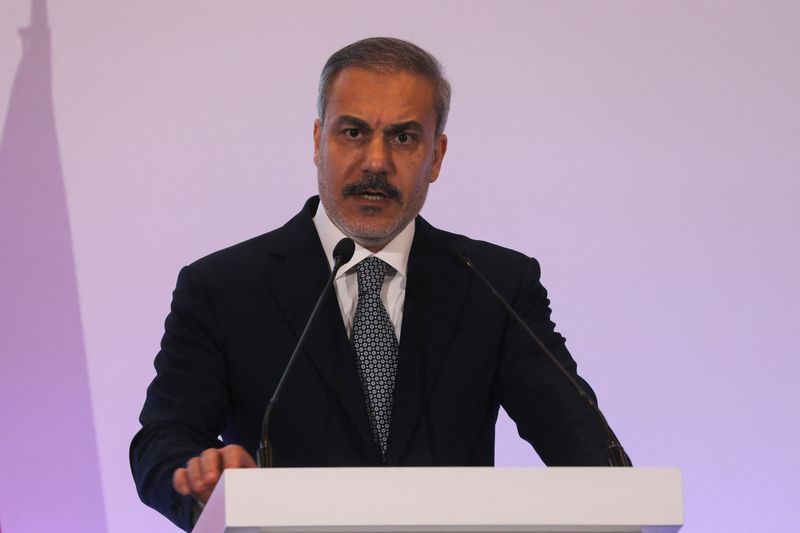By Ece Toksabay and Tuvan Gumrukcu
ANKARA (Reuters) -Turkey is opening its Yayladagi border gate with Syria to handle the protected and voluntary return of the hundreds of thousands of Syrian migrants it hosts, President Tayyip Erdogan mentioned on Monday, after President Bashar al-Assad’s sudden ouster by rebels.
In one of many greatest turning factors for the Center East in generations, rebels seized the Syrian capital Damascus and Assad fled to Russia, following 13 years of civil warfare and greater than 50 years of his household’s brutal rule.
“We are opening the Yayladagi border gate to crossings to prevent any congestion and ease traffic,” Erdogan mentioned, talking after a cupboard assembly in Ankara.
The Yayladagi crossing near the northwest fringe of Syria has been closed since 2013 resulting from preventing close to the border.
“We will also manage the processing of immigrants’ voluntary returns in a way befitting our hosting,” Erdogan mentioned.
Earlier on Monday, International Minister Hakan Fidan mentioned Turkey would work for the protected and voluntary return residence of the Syrian migrants it hosts.
Turkey – which mentioned it gave no assist and had no involvement within the offensive by the Syrian opposition forces it has backed for years towards Assad – mentioned on Sunday it wished the brand new Syrian administration to be inclusive and for Syrians to find out their very own future.
In an tackle to the Turkish Ambassadors’ Convention in Ankara, Fidan mentioned Turkey was prepared to offer assist for Syria’s rebuilding and that it was coordinating with all “regional actors and parties”.
He added that Ankara would stand with Syrians on this “new phase” in Damascus, however teams reminiscent of Islamic State and the Kurdistan Staff’ Social gathering (PKK), which Ankara sees as terrorist organisations, should not profit from the state of affairs.
NATO member Turkey hosts some 3 million Syrian migrants and refugees, making it the most important host of Syrians who’ve fled the civil warfare.

It additionally controls swathes of land in northern Syria after a number of cross-border incursions towards the Syrian Kurdish YPG militia, which Ankara sees as an extension of the PKK.
Shares in Turkish building and cement corporations surged on Monday, buoyed by expectations that they may profit from rebuilding in Syria.




